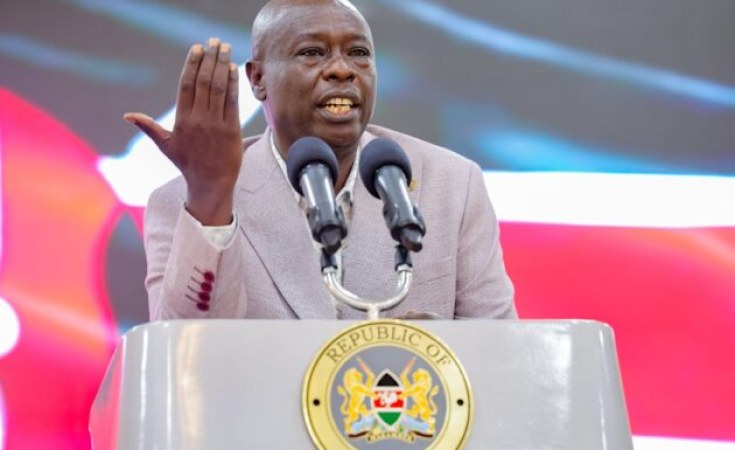Kenya's opposition lawmakers on Tuesday joined forces with the ruling party to vote for the impeachment of Deputy President Rigathi Gachagua, just two years into his term.
Parliament overwhelmingly backed the motion to remove Gachagua, a significant development in the country's political history.
The impeachment vote follows a rare alliance between President William Ruto and opposition leader Raila Odinga, who has seen six of his key allies appointed to government positions after unrest in July.
The move mirrors the political shift in Kenya, where the two rivals have found common ground amid growing tensions.
The motion, which cited allegations of corruption, insubordination, and divisive politics, passed with 281 members in favor, significantly surpassing the required 117 votes. Only 44 members opposed the motion, while one abstained, according to Speaker Moses Wetangula.
The impeachment proceedings now move to the Senate, where a confirmation would make Gachagua the first deputy president to be removed from office under the 2010 constitution.
In a brief response after the vote, Gachagua, who has been facing corruption allegations, expressed his acceptance, quoting Bible verses on gratitude.
During a 12-hour session, the embattled deputy president took the floor to defend himself, insisting that the charges were politically motivated and urging lawmakers to "search their conscience."
He maintained that his wealth was acquired through legal means, including business ventures and family inheritance, referencing high-profile assets like the Treetops Hotel.
The impeachment vote is seen as a show of confidence in President William Ruto's administration, which enjoys a solid majority in the 349-member National Assembly.
Legal scholars have argued that the impeachment can be appealed through the courts even though some quarters argue that the Senate's decision is final.
"He lacked the strategic political patience needed for the role, succumbing to the same fate as other deputies or vice presidents who sought quick, 'instant coffee' solutions," Dismas Mokua, a Nairobi-based political risk analyst is quoted by AFP.


